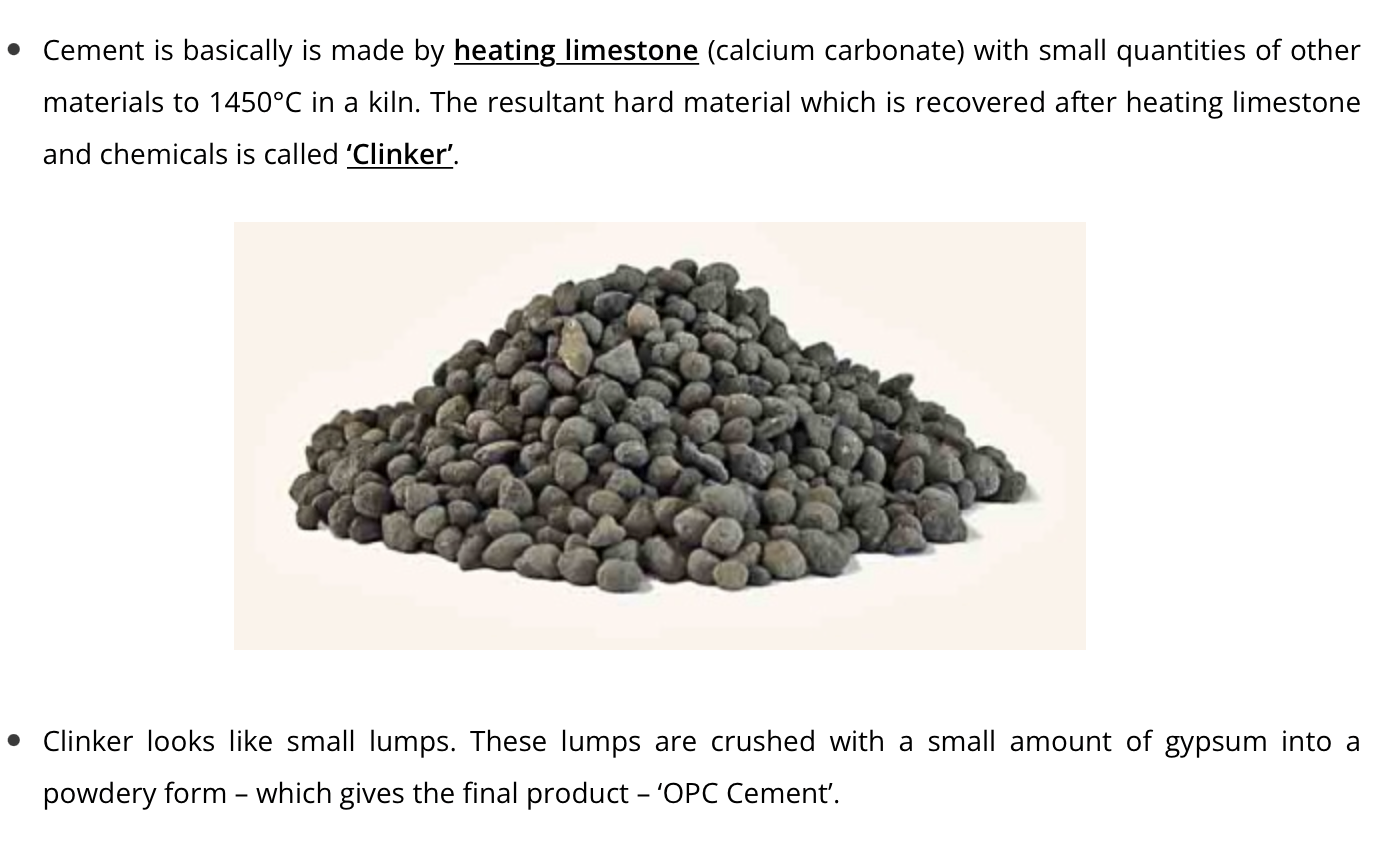
Baba Ramdev Makes Moves With $$ In Mind
Good Morning Toasters!
Hiii friends. Happy weekend and happy resting. In a week that started off with some positivity, especially as FIIs decided to participate in the rally; the joy was ultimately short-lived.
Ultratech responded in kind to the threat posed by Adani, announcing an INR 129 Bn new capital expenditure plan that will increase capacity, pan-India via greenfield and brownfield investments. Aditya Birla Group companies have not fared well to increased competition, Idea with Jio or ABFRL with Reliance Retail, so with Adani entering cement, we’re all eyes on the group’s next moves.
Baba Ramdev purchased Ruchi Soya in 2019, via loans from Public Sector Banks, with a grand plan of one day being the largest consumer goods company in the country; recently, Patanjali sold their foods division to Ruchi Soya on a slump-sale basis, with multiple strategic objectives at play.
And finally, we’ve started a rollout of our newest product, Trade:able, that aims to democratise trading, via a unique and fun learning experience. There are a bunch of amazing rewards and prizes to win. Click here to know more.
Market Watch
Nifty 50: 16,584.30 | -43.70 (-0.26%)
FII Net Sold: INR 3,770.51 crore
Sensex: 55,769.23 | -48.88 (-0.09%)
DII Net Bought: INR 2,360.51 crore
Company News
Ultratech doubles down on capacity expansion in wake of Adani’s entry into space; what’s up and what do you need to know?
The Announcement
- In response to Adani entering the space of the cement via the twin acquisition of ACC and Ambuja Cements (aka Lafarge Holcim), and thus catapulting to the Numero Deux position in the industry, Aditya Birla Group-owned Ultratech Cement announced a capacity expansion to the tune of 17% of post-completion of ongoing projects
- Ultratech’s board has approved a capital expenditure plan of INR 129 Bn or USD 76 / Ton for setting up 22.6 Metric Tonnes (Mt) of new cement capacity, with the expansion of a mix of brownfield (addition to existing plans) and greenfield (new plant addition)
- Funded via a mix of debt and internal accruals, the new capacity will be a mix of integrated & grinder units, and bulk terminals and is labelled as necessary to cater for future growth
The Reality
- Ultratech has already announced/is presently underway in implementing a 16 Mt cement capacity expansion for FY23, in addition to 11 Mt of clinker expansion (see image below for reference), taking its total grey capacity for the year to 136 Mt
- Given current expansions is already underway, the likelihood of some delay in the commissioning of new plans is expected, as development involves the acquisition of new land parcels (greenfield), and closure of current projects
- That being said, at the close of FY23, Ultratech’s pan-India market share will likely be ~21%, with 13-15% in South and East, 22% in North and 35% in Central and West India
- And this sets the company up well for its next leg/phase of growth, supported by volume growth which should help to maintain its current leadership position
Interesting! Why? What’s the financial impact? Also, how did the stock react? And we’re just getting started, aren’t we?
- Factoring in the next phase of capacity expansion by FY25, CAGR between FY22-25E will likely be ~14% for capacity and volume growth, which is ~2x of cumulative industry CAGR during the same period (taking into consideration Adani’s entry)
- This announcement has clearly been made in response to Adani’s entry into the space, with other Aditya Birla group companies often bowing under pressure to newer, larger entrants (think: Idea with Jio, or ABFRL with Reliance Retail)
- The group ought to buck this unwanted trend/record while maintaining its dominant position in a sector in which the Ultratech has had a relatively free shot at the price (most competitors are regional players, with limited ambition)
- The cement industry is a mixture of demand, capacity utilisation and expansion and logistics, which define the margins ultimately, and with weak demand, high fuel prices and increased competition, the markets may not be enthused with high capital expenditure at this juncture
- Ultratech Cement closed ~5.5% down on the news of this capacity expansion, with the broader cement companies also closing in the red

If you’re interested in financial news & analysis, and wish to receive this email in your mailbox consistently, click here to Subscribe Now
Around the World 🌎
- Facebook loses its crown jewel – Sheryl Sandberg is leaving Meta after 14 years as the number-two executive at the world’s largest social-media company, possibly to invest her time for philanthropic efforts and her family while continuing her position on the board. However, Sandberg’s departure seems to be linked with the burnout she has been mentioning for a long time. The company’s shares fell by 2% after the news hit just before the close of markets
- Microsoft cuts earnings – Microsoft is the latest multinational company to warn of the stronger dollar’s impact on financials. The company now expects fiscal fourth-quarter sales of between $51.94 billion and $52.74 billion, down from its prior guidance of $52.4 billion to $53.2 billion. Earnings are expected to be between $2.24 a share and $2.32 a share, down from prior guidance of $2.28 a share to $2.35 a share. The shares fell by 2.6% in early trading to $265.31, and are down around 21% year to date
- Kohl’s might have a new parent – Kohl’s Corp has received takeover bids from several giants like private-equity firm Sycamore Partners and retail holding company Franchise Group Inc. with values being in the mid-$50s a share to $60 per share (implying an overall valuation of $7-8 billion). Shares of the company have fallen 17% YTD (pressured by a broader market selloff) but rose nearly 8% in after-hours trading Thursday to ~ $41.18
Company Corporate Development
Baba Ramdev, Ruchi Soya, Patanjali Ayurved and moves with $$ in mind; what’s up and what do you need to know?
- Circa 2019, astute businessman, yoga guru and the most flexible man in the country, Baba Ramdev pulled off a coup, convincing public sector banks to shell-out INR 3000 crores for the acquisition of the bankrupt Ruchi Soya
- Priced at INR 4,350 crores, Baba Ramdev purchased Ruchi Soya through external debt and internal accruals from Patanjali Ayurved; cut to March’22, with the markets in relative strength, Ruchi Soya launched a follow-on public issue and raised INR 4,300 crores, effectively repaying the banks
- Ruchi Soya now has an MCAP of INR 37,500 crores, with Baba Ramdev’s personal stake in the company pegged at ~81% (you do the maths!!), culminating in a classic successful business move
- It doesn’t end here though – in May’22, Baba Ramdev struck again, this time selling the fast-growing packaged foods business of Patanjali Ayurved to Ruchi Soya on a slump-sale basis (the term for selling at/below cost)
- The business contributes INR 4,124 crores in revenue to Patanjali, which roughly translates to a little >1/3rd of the company’s topline, while also growing 40% every year, and yet Ruchi Soya purchased this business for a sum total of INR 690 crore
Why??
- On the face of it, the deal makes little sense (right??), as Patanjali receives a pittance of what a traditional fast-growing packaged foods company can command in terms of valuations (2-3x sales, which equals to INR 10,000 crores)
- And yet, given Patanjali operates across a wide plethora of businesses, including ayurvedic formations, health supplements, cosmetics & beauty products, food was always considered the company’s weak-point
- Patanjali recorded a paltry 2% growth in 2019, on the back of a squeeze in their food business, which ultimately operates in a highly competitive environment
- While Patanjali wanted to de-leverage itself from the foods business, Ruchi Soya needed to firm up its margins, which for a company that generates >INR 20,000 crores in topline, were a sub-standard INR 1,000 crores
- And hence, in Baba Ramdev’s fashion, he transferred the food division to Ruchi, which straightaway added INR 1,500 crores to the company’s bottom line (debt remained with Patanjali), while also changing the complexion
A win for Baba Ramdev, a win for Ruchi Soya and a potential win for Patanjali? Final thoughts?
- According to SEBI regulations, promoters are required to maintain their shareholding at 75%, which means Baba Ramdev is expected to reduce his stake by the year-end (currently at 81%)
- More importantly, now that the capital intensive food business is off Patanjali’s books, albeit on a smaller topline, the company is better positioned to fetch a high valuation, once it decides to access the markets for a listing
- At the time of acquiring Ruchi Soya, Mr. Ramdev had listed goals of beating Hindustan Unilever and becoming the largest consumer goods company in the country; with Ruchi Soya + Patanjali Ayurved, he’s en route?
Thanks to the good folks at The Morning Context for doing a deep dive on this particular move.
What else caught our eye? 👀
India’s services sector does not disappoint
- India’s dominant services sector kept expanding at the fastest pace in 11 years in May on strong demand and new orders through inflationary pressures continued to plague and touched new highs as well
- The S&P Global India Services Purchasing Managers’ Index rose to 58.9 in May from 57.9 in April (The 50-mark separates growth from contraction)
- Input prices rose at the sharpest pace in the survey history too with substantial pressure from food, fuel, input, labour and transportation costs
Has EdTechreached its peak?
- The reopening of schools offline + falling investor interest have dampened spirits in the EdTech sector with some NBFCs actively avoiding the segment due to higher risk.
- The startup sector is overall facing a margin squeeze over global unfavourable conditions and is expected to lay off at least 5,000 employees (as seen by Unacademy, Vedantu and WhiteHat Jr)
- Startups are now increasingly focusing on creating more profitable and self-sustained business models with targeted customer acquisitions
Educational Topic of the day
Crack Spread
The crack spread refers to the difference between the price of crude oil and the prices of refined products. The typical spread ratio is to buy 3 crude oil contracts and sell 2 gasoline contracts plus 1 heating oil contract (3:2:1). This price difference represents the yield of “cracking” 1 unit of crude oil.
Edited by Raunak Karwa
Let’s connect, I always love hearing from you. Hit me up at Raunak_Karwa on Twitter or Raunak.karwa@finlearnacademy.com








